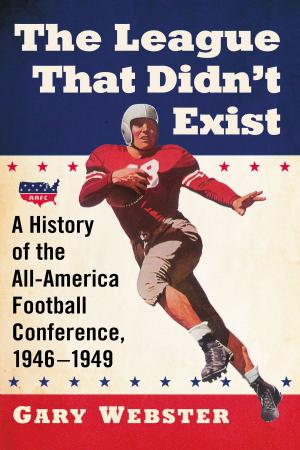The Music of Counterculture Cinema
A Critical Study of 1960s and 1970s Soundtracks
Nonfiction, Entertainment, Performing Arts, Film, Music| Author: | Mathew J. Bartkowiak, Yuya Kiuchi | ISBN: | 9781476620510 |
| Publisher: | McFarland & Company, Inc., Publishers | Publication: | June 14, 2015 |
| Imprint: | Language: | English |
| Author: | Mathew J. Bartkowiak, Yuya Kiuchi |
| ISBN: | 9781476620510 |
| Publisher: | McFarland & Company, Inc., Publishers |
| Publication: | June 14, 2015 |
| Imprint: | |
| Language: | English |
Films produced in late 1960s and early 1970s America—along with later films focusing on that period—continue to frame our understanding of the counterculture era. The popular and experimental music of the day is central to the counterculture narrative on film, from the utopian Monterey Pop (1968) to the disenchantment of Gimme Shelter (1970). But the musical side of the movement was not monolithic, and a study of contemporary film soundtracks reveals a great deal of complexity. The coinciding struggles to define collective and individual identities based on race, class, gender and generation are well documented in the music of counterculture cinema.
Films produced in late 1960s and early 1970s America—along with later films focusing on that period—continue to frame our understanding of the counterculture era. The popular and experimental music of the day is central to the counterculture narrative on film, from the utopian Monterey Pop (1968) to the disenchantment of Gimme Shelter (1970). But the musical side of the movement was not monolithic, and a study of contemporary film soundtracks reveals a great deal of complexity. The coinciding struggles to define collective and individual identities based on race, class, gender and generation are well documented in the music of counterculture cinema.















